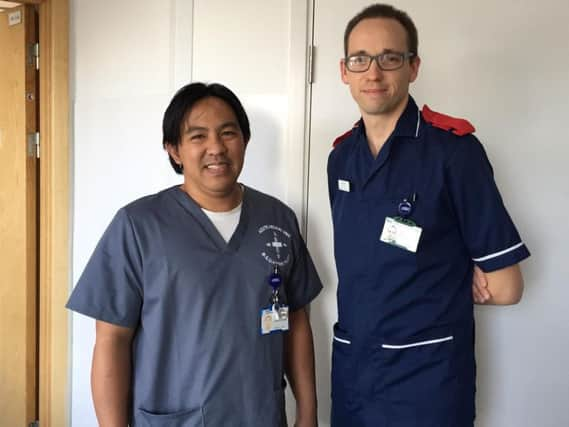New hospital staff free up nurses to care for patients


Now, hospital workers have said the move has made ‘a huge impact’, and hope to roll the scheme out to other NHS trusts.
Research by the Brighton and Sussex University Hospitals Trust (BSUH), which runs the Royal Sussex County Hospital, found that non-patient care activities were taking up too much ‘valuable time’ from nurses in 33 organisations in the region.
Advertisement
Hide AdAdvertisement
Hide AdIn response, BSUH brought in new staff to take on ‘non-patient care tasks’ such as making sure equipment was available, working, clean, maintained, calibrated and re-ordered, and that staff were trained how to use it.
Now, more than 18 months on, the ward manager in BSUH’s acute medical unit Craig Marsh said: “It’s made a huge impact.”
With two ‘clinical technologists’ working alternate shifts on the ward, Mr Marsh said stock was well-ordered and stored, and the equipment and relevant parts were clean, available and ready to use.
He said: “Individually these are small jobs but they make such a difference to other members of staff and to the smooth running of the unit.”
Advertisement
Hide AdAdvertisement
Hide AdHe gives as an example the blood sugar machines. These can’t be used unless they’ve been quality-control checked within the previous 24 hours. Before the clinical technologists arrived, Mr Marsh said it was often at the 24th hour that a member of staff would have to go and have a machine checked.
Dyrrick Diaz, one of the clinical technologists on the acute medical ward, said: “We’re here to help the nurses, to make their work easier. I can see that it really helps to have the equipment ready when they need it. It leaves the nurses more time to spend with their patients and that’s how it should be. I find it very fulfilling.”
Holly Reid, BSUH clinical technologist project lead, said: “We are piloting the use of ward-based clinical technologists and the aim is to improve the job satisfaction of nurses and healthcare assistants by relieving them of tasks they do not enjoy; increase the amount of time they spend on patient care, and improve overall efficiency on the ward by decreasing equipment down-time and improving stock availability.
“This is an exciting project being rolled out across the trust and we hope it will become the blueprint for best practice across the region.”